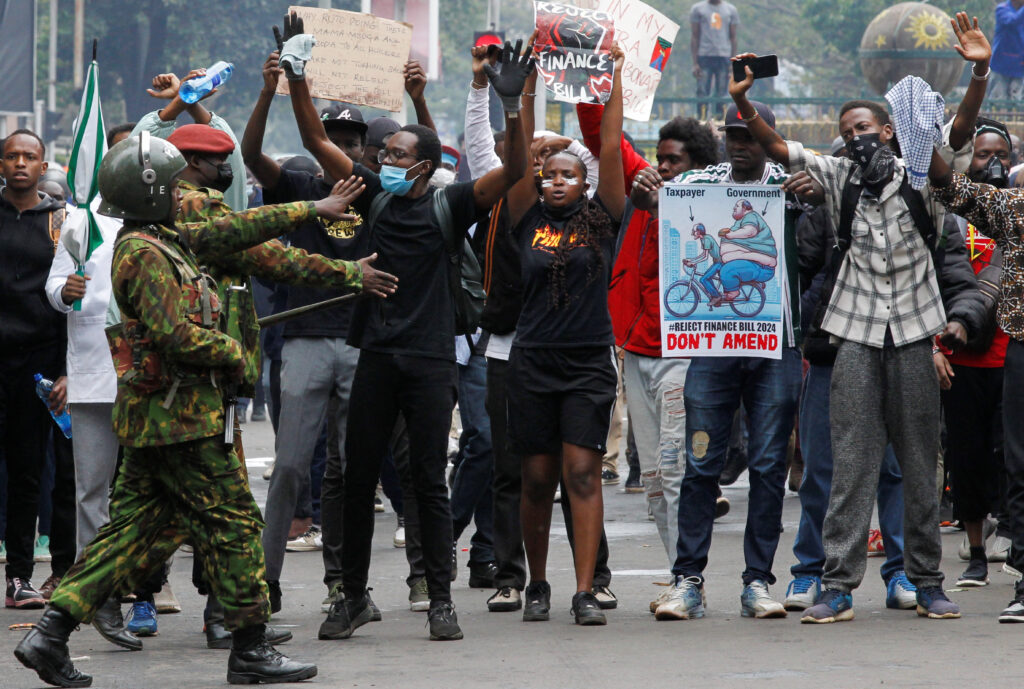Every week for about two months now, there have been protests spearheaded by the youth in Kenya, popularly known as Gen Z. This movement, leaderless, tribeless, motivated and knowledgeable in matters of the law to the point where it’s scary, was catalysed by the proposed Finance Bill, which was gazetted on 9th May 2024.

The reaction was sort of a ripple effect, as one by one, people read through the Bill and civic education was carried out across social media platforms and more people became more informed on the contents of the proposed bill. The eyebrows began to rise, and people began to ask the government for accountability on its expenditure, as the taxes have been on a steady rise but there is no evident substantial development in the country. The heat continued to rise as people began to read the Finance Bill side by side with the Revenue Bill. The Revenue Bill, which showed how the government planned to utilize the tax money, demonstrated a gross amount of extravagance, as it was mostly a budget centred around the comfort of civil servants. People, especially the youth, were severely outraged, as they were bearing the brunt of problems, such as unemployment, all while the money that was meant to create more job opportunities for them to be able to live like human beings, was being funneled into the pockets of politicians and their kin and friends, all while they’re struggling to survive. Complacency was no longer an option here. They took to the streets with vigor, courage and unity amongst themselves, being led by a singular purpose: to reject the Finance Bill and to demand accountability from their leaders. This was totally unprecedented, and it vexed the higher-ups of the country. They simply could not comprehend how a group of people; children, in fact, could move as a unit: coordinated, united, consistent and fearless, without a leader or without any tribal or political affiliations.
The protests have been peaceful, but the organization and the sheer impact they have made so far in the international community have the president and his officials quaking in their boots. That’s when the arbitrary abductions started, as ‘Zakayo’ and his cronies, as known in the eyes of the youth, desperately tried to find the leader of the faceless movement. Obviously, they have been unsuccessful, as there is really no leader. Then slowly, the movement began to be infiltrated. First, it was the protests, where goons would mingle with peaceful protesters and wreak havoc, giving the police officers a reason to shoot at the peaceful protestors. This was a fear tactic, but it did not deter Kenyans, as they continued to move forward with the same zeal and fervor as they did in the beginning.
Eventually, President William Samoei Ruto bowed to the pressure and withdrew the Bill, reluctantly of course. He went a step further and disbanded the Cabinet. This was, however, a PR stunt, as he reinstated the same people back, only changing the sectors they were representing.
That aside, the motivations have slowly changed. The initial motivation was the scrapping of the Finance Bill, but the President’s response to the citizens’ demand for fiscal accountability angered people, and rightfully so. Now, people want him out, hence the mantra ‘Zakayo shuka’ which means ‘Zaccheus Come down’, a reference to statements he made during his campaign, where he referred to himself as ‘Zakayo’. While the anger against the president is completely justified, I fear we have lost the plot in seeking President William Ruto’s impeachment.
An impeachment, at surface level, seems like the most plausible solution to the bad governance demonstrated in the past year. However, we have to ask ourselves ‘what next?’. Thus far, there is no one to take his place in the event that this demand is met, which, on its own, is very unlikely. But say the demand was met, and Ruto agreed to resign peacefully; there is no one to take his place. This would result in a power vacuum, which would be a problem on its own, perhaps even bigger than the one in our hands currently. It would be like jumping from the frying pan into the fire. This is because, consequently, a power vacuum would subsequently lead to the military grabbing the reins. I deduce from other African countries that have had the misfortune of experiencing a military coup that they are not very interesting, and it would be in no one’s best interest, in this scenario, to end up in the middle of it.

